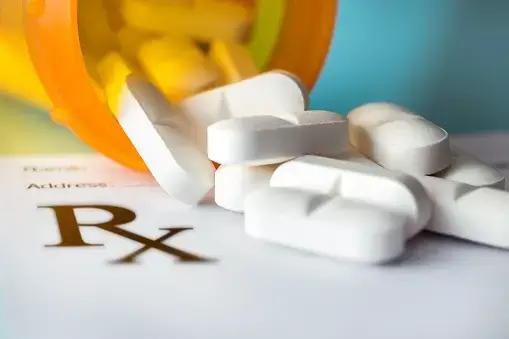- Home
- Medical news & Guidelines
- Anesthesiology
- Cardiology and CTVS
- Critical Care
- Dentistry
- Dermatology
- Diabetes and Endocrinology
- ENT
- Gastroenterology
- Medicine
- Nephrology
- Neurology
- Obstretics-Gynaecology
- Oncology
- Ophthalmology
- Orthopaedics
- Pediatrics-Neonatology
- Psychiatry
- Pulmonology
- Radiology
- Surgery
- Urology
- Laboratory Medicine
- Diet
- Nursing
- Paramedical
- Physiotherapy
- Health news
- Fact Check
- Bone Health Fact Check
- Brain Health Fact Check
- Cancer Related Fact Check
- Child Care Fact Check
- Dental and oral health fact check
- Diabetes and metabolic health fact check
- Diet and Nutrition Fact Check
- Eye and ENT Care Fact Check
- Fitness fact check
- Gut health fact check
- Heart health fact check
- Kidney health fact check
- Medical education fact check
- Men's health fact check
- Respiratory fact check
- Skin and hair care fact check
- Vaccine and Immunization fact check
- Women's health fact check
- AYUSH
- State News
- Andaman and Nicobar Islands
- Andhra Pradesh
- Arunachal Pradesh
- Assam
- Bihar
- Chandigarh
- Chattisgarh
- Dadra and Nagar Haveli
- Daman and Diu
- Delhi
- Goa
- Gujarat
- Haryana
- Himachal Pradesh
- Jammu & Kashmir
- Jharkhand
- Karnataka
- Kerala
- Ladakh
- Lakshadweep
- Madhya Pradesh
- Maharashtra
- Manipur
- Meghalaya
- Mizoram
- Nagaland
- Odisha
- Puducherry
- Punjab
- Rajasthan
- Sikkim
- Tamil Nadu
- Telangana
- Tripura
- Uttar Pradesh
- Uttrakhand
- West Bengal
- Medical Education
- Industry
Empagliflozin and semaglutide combination improves glycemic control and BP but not arterial stiffness

A recent 32-week study investigated the effects of empagliflozin, semaglutide, and their combination on vascular function. This study published in the Diabetes, Obesity and Metabolism revealed unexpected results that could reshape the strategies of diabetes management.
The involved a total of 120 patients with type 2 diabetes and these participants were divided into four groups: placebo, semaglutide, empagliflozin, and a combination of both medications. The co-primary outcomes of this study were changes in arterial stiffness and kidney oxygenation, with a specific focus on carotid-femoral pulse wave velocity as a measure of arterial stiffness.
The carotid-femoral pulse wave velocity remained unchanged across all the groups, including the combination treatment which challenges the previous assumptions about the efficacy of these medications on arterial stiffness.
The study uncovered that the combination treatment group experienced a significant 10 mmHg reduction in 24-hour systolic blood pressure, outperforming both the placebo and monotherapy groups. This reduction is considered clinically important and suggests a potential avenue for managing cardiovascular risk in individuals with type 2 diabetes.
Also, the combination treatment demonstrated an impressive increase in glycemic time in range, rising from 72% at baseline to 91% at week 32 without increasing the risk of hypoglycemia.
Additional secondary outcomes further supported the benefits of combination treatment. The urinary albumin to creatinine ratio decreased by 36% in the combination group when compared to the placebo group.
The study did not observe reduction in arterial stiffness with empagliflozin, semaglutide or their combination, but noticed the unexpected and substantial reduction in 24-hour systolic blood pressure, improved glycemic control and kidney health outcomes in the combination group. This presents a promising development for diabetes treatment. Further research and exploration of these findings may open paths for more effective and comprehensive approaches to managing cardiovascular risks in individuals with type 2 diabetes.
Source:
Vernstrøm, L., Gullaksen, S., Sørensen, S. S., Funck, K. L., Laugesen, E., & Poulsen, P. L. (2024). Separate and combined effects of empagliflozin and semaglutide on vascular function: A 32‐week randomized trial. Diabetes, Obesity & Metabolism. https://doi.org/10.1111/dom.15464
Neuroscience Masters graduate
Jacinthlyn Sylvia, a Neuroscience Master's graduate from Chennai has worked extensively in deciphering the neurobiology of cognition and motor control in aging. She also has spread-out exposure to Neurosurgery from her Bachelor’s. She is currently involved in active Neuro-Oncology research. She is an upcoming neuroscientist with a fiery passion for writing. Her news cover at Medical Dialogues feature recent discoveries and updates from the healthcare and biomedical research fields. She can be reached at editorial@medicaldialogues.in
Dr Kamal Kant Kohli-MBBS, DTCD- a chest specialist with more than 30 years of practice and a flair for writing clinical articles, Dr Kamal Kant Kohli joined Medical Dialogues as a Chief Editor of Medical News. Besides writing articles, as an editor, he proofreads and verifies all the medical content published on Medical Dialogues including those coming from journals, studies,medical conferences,guidelines etc. Email: drkohli@medicaldialogues.in. Contact no. 011-43720751


